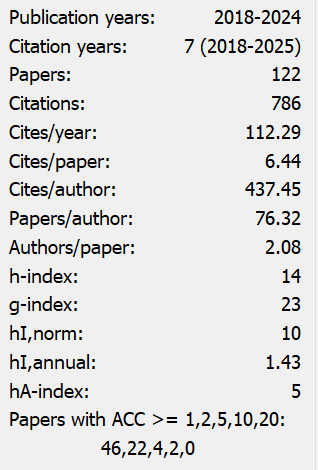A Study on the Motivation and Economic Consequences of Corporate Controlling Equity
Abstract
This study analyzes the motivations and economic consequences of corporate controlling equity behavior among Chinese listed companies, especially in the context of high-quality development goals. Through qualitative case analysis of firms such as Greenland Group, Alibaba, and Vanke, the research identifies three dominant motives: shell listing, strategic fit, and merger & acquisition (M&A) demands. Economic consequences include stakeholder conflicts, shareholder agency issues, and stock volatility. By adopting agency theory and stakeholder theory frameworks, this study recommends implementing equity checks and balances, aligning control with strategy, and ensuring long-term financial sustainability. The findings contribute to understanding how control dynamics shape corporate governance and financial performance in emerging markets.
References
[2] Ren, H. (2014). Research on the motivation and economic consequences of major shareholders' equity pledge. Business Accounting, (01), 75–76.
[3] Liu, X. (2016). Main motivations, risk hazards and policy suggestions of equity pledge financing of privately listed companies. Financial Economy, (24), 155–156.
[4] Wen, W., Chen, Y., & Huang, Y. (2018). Research on the impact of controlling shareholders' equity pledge on corporate innovation. Journal of Management, 15(07), 998–1008.
[5] Ye, Y., Yang, Q., & Hu, Y. (2021). Do equity pledges affect analysts' earnings forecasts? An evidence-based study on the interactive behavior of listed companies and analysts. Auditing and Economic Research, 36(06), 56–69.
[6] Ding, X. (2017). Research on the hollowing out behavior under equity pledge of major shareholders in New Third Board companies [Master’s thesis, Jinan University].
[7] Hao, Y., & Wang, X. (2015). Research on equity check and balance mechanism of mixed ownership enterprises: Based on the case analysis of “E-Wushang control dispute”. China Industrial Economy, (03), 148–160.
[8] Sun, Z. (2006). Shareholding concentration, shareholding checks and balances and technical efficiency of listed companies. Management World, (07), 115–124.
[9] Wu, H., & Wu, S. (2009). Equity checks and balances, major shareholder hollowing out and enterprise value. Economic Management, 31(03), 44–52.
[10] Liu, X., Xue, Y., & Yan, Z. (2014). Research on the determinants of corporate risk taking: Analysis based on separation of powers and equity checks and balances. Economic and Management Research, (02), 47–55.
[11] Zhang, X., & Liao, L. (2010). Equity separation reform, voluntary disclosure and corporate governance. Economic Research, 45(04), 28–39, 53.

This work is licensed under a Creative Commons Attribution 4.0 International License.
Copyright for this article is retained by the author(s), with first publication rights granted to the journal.
This is an open-access article distributed under the terms and conditions of the Creative Commons Attribution license (http://creativecommons.org/licenses/by/4.0/).


























